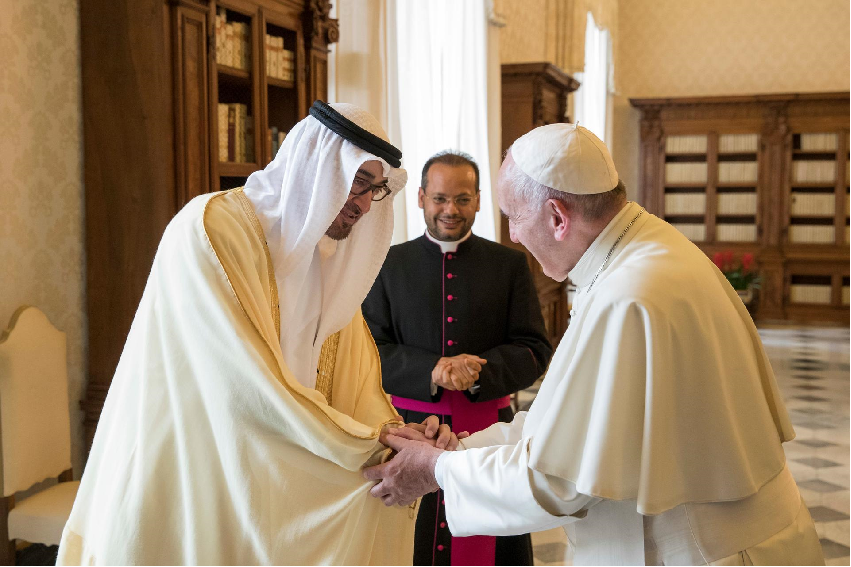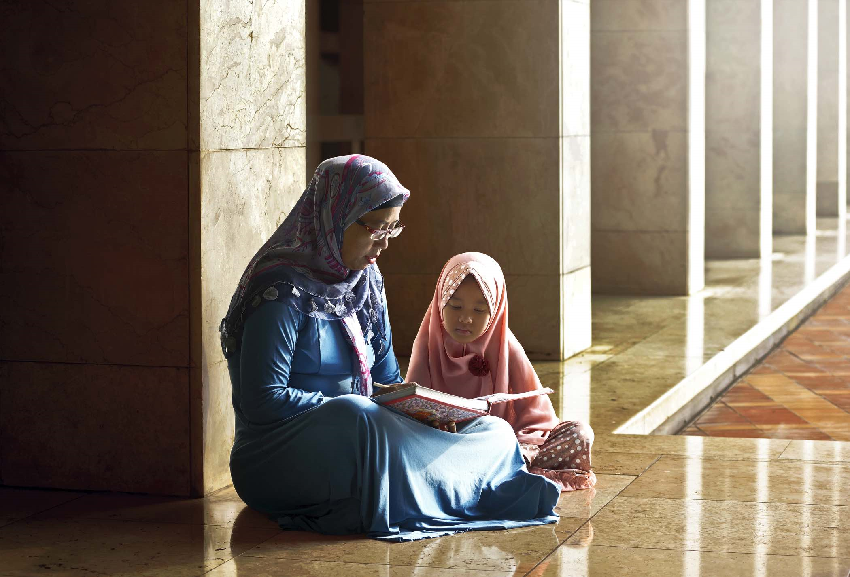
Islam and Christianity: from confrontation to dialogue
The history of relations between Islam and Christianity is the history of two great civilizations traditionally facing each other. This confrontation has not been, however, exempt from mutual influences and bridges of communication and dialogue. Through the deployment of the perceptions of one world over the other. The author proposes, a means of ensuring coexistence between the two. The acceptance of the balance between their common nature and the diversity of their cultures as a source of wealth.
We would like to resort to that old idea according to which the Mediterranean is the first and foremost space of civilization. When speaking of civilization in the framework of the Mediterranean, however, it is possible to do so in the plural. Looking to the past, this sea full of history is a graveyard of civilizations rather than civilization in the singular. The Mediterranean is, in particular, the space where two great civilizations confront each other. Christian Europe and the Islamic Arab world. Speaking in these terms immediately requires some clarification.
Islam And Christianity: A Common Heritage
When thinking about both religions, many Christians and Muslims tend to highlight the differences that separate them, without highlighting what is also common between them. Islam and Christianity are, like Judaism, Abrahamic religions. All three religions date back to the word of the prophet Abraham; thus, Judaism, Islam, and Christianity are often said to constitute the three religions of the Book.
Moucarry (1988) recalls that the Arabs were polytheistic before Mohammed. As were the Jews in the beginning, and as was Europe before the advent of Christianity. It is necessary to underline this point, because although the polytheistic past of the West is kept in mind. The first polytheism of the Arabs is more easily forgotten, and even more so than that of the Jews. As for the Arabs, let us also remember that Mohammed fought, in a time of great social and political instability. The existing polytheism and idolatry, claim the absolute authority of God, of the only God.
The Perception of the Islamic Arab World By the Christian West
Very soon, Islam becomes a problem for the Western Christian world. This perception of Islam as a problem dates back to the beginning of our Middle Ages and continues to this day. In the first place, Islam, championed by the Arabs, poses a political problem for Christian Europe. When it reaches the southern borders of the Old Continent. It can be argued that the Islamic world, for very different reasons, continues to pose a serious political problem to the Western Christian world at the beginning of the 21st century.
But it cannot be forgotten that Islam also poses a serious theological problem. That casts a shadow over relations between the two religions. Considering the birth, baptism, transfiguration, crucifixion, and resurrection of Jesus Christ, what need is there for a new revelation six centuries later? Furthermore, the theological status of Christ opens a gap between Islam and Christianity. If for Christians Jesus is the son of God and God himself, for Muslims he is one of the great prophets of God.
The Perception of the Christian West by the Islamic Arab World
The Islamic Arab world presents the internal complexity that we alluded to at the beginning of this article; Despite this, this part of the world is dominated by Arab and Islamic elements. But it is also internally divided into these two crucial aspects of its civilization: the Arab and the Islamic. Up to a certain point, the Arab and the Islamic have represented two alternative paths of unification or at least rapprochement.
On the other hand, the Arab has not only been a factor of unification; It has also been a factor of the division since it has given rise to both pan-Arabism and the nationalism of the nation-state. Finally, we must remember the rise in recent times of the call for a unifying and saving Islam. Building on a radically different vision such as Nasserism.
To understand the Western world’s perception of the Islamic Arab world, we must begin by remembering the political and economic colonization suffered by the latter at the hands of the former, as well as the dependency that followed formal decolonization. Mehmet (1990) writes, referring to what he calls «poverty, marginalization and inequality»: «[…] The revival of Islam is seen as a movement of social protest, which focuses on urban migrants discriminated against by an unequal growth in population. post-war period”.
Conclusion
Balta (1991) makes the following reflection: «The West seems to have reached the extreme limit of that project. In which, man, owner, and lord of nature. Proposed unlimited production, oriented towards exponential consumption aimed at enjoyment and pleasure. as purpose. At a time when we are witnessing an immense search for values and ideals. The sky of the West seems singularly depleted. Hence the surprising, unusual, and unacceptable aspect of the resurgence of the East. That is, I think, where the source of that conflict, of that deaf anger, of that restlessness that you mention. Must be sought, since the East, in search of spirituality, and rebirth. Not only of independence seems to return to the West the distorted image of its own gaps.
You may like to read The influence of religion on children and their rights





